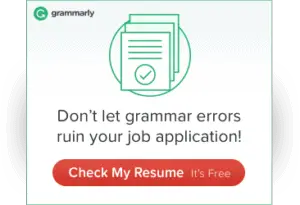Here are some answers to the question why can’t I get an IELTS band 7…
- You don’t do active listening practise, you just listen to movies and music with no specific purpose to your listening.
- You keep taking the test hoping it will just get easier or you will get luckier on test day.
- You keep searching the internet for a magic formula rather than doing real practice.
- You don’t get feedback on your practise tests so you don’t know what you need to improve.
- You only read for short periods of time not for long periods like you have to in the test.
- You do not practice writing task 1 because you think it is not as important as task 2.
- You think the test is somehow to blame for you not getting the score you need.
Here is a detailed response to the question why can’t I get an IELTS band 7…
“Failures are sign posts on the road to achievement.”
C.S. Lewis
It almost hurts me when I read another e-mail to my site asking the same question ‘why can’t I get IELTS band 7?‘.
 You deserve to be able to get on with your life without worrying about an annoying English test. So, what is it? What is the real reason you can’t get an IELTS band 7.
You deserve to be able to get on with your life without worrying about an annoying English test. So, what is it? What is the real reason you can’t get an IELTS band 7.
Well, unfortunately, and I see this time and time again in the classes I teach both face to face and online. The biggest reason for a student repeatedly failing their IELTS test is themselves, yes YOU!
You see, YOU are often the biggest obstacle getting between yourself and getting the band score you need. If you don’t believe me then how many of these are true for you? If you do any of these things then you are not helping yourself get the score you need:
- I practice listening to English by listening to English songs or watching movies.
- I watch, or have watched all the IELTS related videos available on youtube.
- I keep taking my test hoping that the questions will become easier next time, or that I will get luckier.
- I keep searching for the perfect structure for different essay types online.
- I rarely read for longer than 10 minutes at a time in English.
- I try to remember long lists of words in order to sound more complex and score a higher mark.
- I do not practice writing task 1 very much because it is not as important as task 2.
- I do not get feedback on my writing.
- I know how to do the test already it’s not my fault I don’t get the score I need.
Now, if you are honest with yourself you may recognize one or two of these. If you are doing any of these then you are reducing your chances of improving your band score.
I have taught thousands of students how to get the band score they need to gain their dream job, to enter their perfect university, or move to the country that they have always wanted to. And the successful students all took responsibility for their learning and took a proactive approach.
Let’s take a look at why the above items on the list are problems and how to fix them:
- I practice listening to English by listening to English songs or watching movies. Unfortunately in the IELTS listening test you have to listen carefully for certain pieces of information and for overall meaning, in other words there is a purpose for your listening and this requires different skills. Now you can improve skills, but only if you practice those same skills.
Listening to music whilst you ‘chill out’ is not practicing those skills. You must practice ‘active’ listening where you are required to really engage with a text. This could be listening for the speakers opinions, listening for specific times/dates, or listening for who said what. These are all active exercises and practicing in this manner is how you can improve this aspect of your listening.
- I watch, or have watched all the IELTS related videos available on YouTube. OK, great good for you. You are most likely now even more confused than when you started. There is a lot of conflicting information out there and just because someone publishes a video on YouTube does not mean it is correct. In fact even when a video/teacher offers good technique another teacher may have another way of doing it which is also correct, so who should you believe?
You can fix this by choosing one reliable source of information and sticking with one trusted teacher. This should prevent you from getting confused as their strategies should not conflict with each other. Rather than spend ages on YouTube why not spend it writing essays that you can get real life feedback on instead, you can use the essay checking service here, for example.
- I keep taking my test hoping that the questions will become easier next time, or that I will get luckier. Unfortunately, the test is widely recognized and world famous because it is so reliable. This means that you are not going to get an easier version of the test next time. Sure you might get different topics but the test is not going to get any easier.
The solution is to accept the fact that if you keep scoring a band 6 and you need a band 7, you need to improve your English in order to increase your score and not just keep booking new test dates, that is basically handing your money over to IELTS, and they are rich enough already!
- I keep searching for the perfect structure for different essay types. Look, there are many ways to structure and essay for IELTS. There is not one magic formula, again different teachers recommend different methods and they may all be perfectly valid.
The key is to make sure that your essay is organized logically. That means starting with an introduction, writing body paragraphs that start with a topic sentence and developing that point with further explanations and examples.
You will then need to finish your essay with a conclusion that sums up your key points and clearly states your final answer to the question. Read our full IELTS essay guide here.
That is pretty much it, if you do that, then your essay is logically organized, so stop looking for a new magical formula that will get you a band 9.
- I rarely read for longer than 10 minutes at a time in English. Fact: The IELTS reading test is 1 hour long. Fact, it is hard work to read a foreign language for one hour without a break. Fact: practicing reading for long periods of time will help you to get used to doing this and make it easier for you on test day. Fact: reading will also help improve your vocabulary and collocation (using words together in the way native speakers would put them together).
- I try to remember long lists of words in order to sound more complex and score a higher mark. Oh dear, you are wasting your time. A friend of mine who is Swedish and therefore a non-native speaker of English eventually became a teacher of English and one of the keys to his success was that for every new word he learned he would do the following:
Write out the word in 6 different sentences, in different types of text (essay, letter, comic, news article), learn the synonyms and antonyms for the word. Learn what words the new word normally appears with i.e. what phrases does it usually appear in, and of course after doing this he would already have a clear idea of the meaning of the word. He would then review these words regularly writing new sentences with them and notice how these words were used in the different texts he read whilst reading.
Done over a period of time this is a highly effective method of improving your vocabulary. Yes, it takes time but failing your test again and again will also take time too
7. I do not practice writing task 1 very much because it is not as important as task 2. 33% of your writing mark is from task 1. If you ignore this part then you are costing yourself valuable marks towards your overall score. Do not ignore it. Read our full guides for IELTS Writing Task 1 General and Academic.
8. I do not get feedback on my writing. I understand this can be difficult for some people but how are you going to know what to do if you do not know what mistakes you are making. You are most likely never going to improve if you don’t get feedback. Ideally this needs to be from a teacher who knows the IELTS test very well and can give you specific advice.
You could/should take a mock online IELTS test here. However, at the very least a native speaker can correct your spelling and grammar. Sometimes you have got to pay for these things but look at it as an investment in yourself and your dream future, goals and ambitions.
9. I know how to do the test already it’s not my fault I don’t get the score I need. Now, this is the biggest problem of them all. A student who is closed minded. Occasionally, I come across a student who does not believe a word I say. They won’t accept advice or criticism from a teacher, often they will take it as a personal criticism. This is never the case, a teacher is simply providing feedback on how to improve and do things better. Try this online IELTS test for examiner feedback to work with.
When you have trained thousands of IELTS students in the past you know what works and what does not. So, try to be more open minded, if you are stuck at one band score it may be that you need to change your approach and do things differently, take a look around this site for new ideas and approaches.
Remember the phrase, if you always do what you always did, you will always get what you always got! So, listen to feedback, listen to advice, apply what you learn and you will give yourself a much better chance of success.
I hope this helps, thank you very much for your valuable time. I would love to hear about what things you think are stopping you improve your band score in the comments section below.



